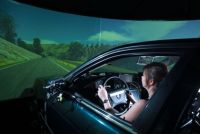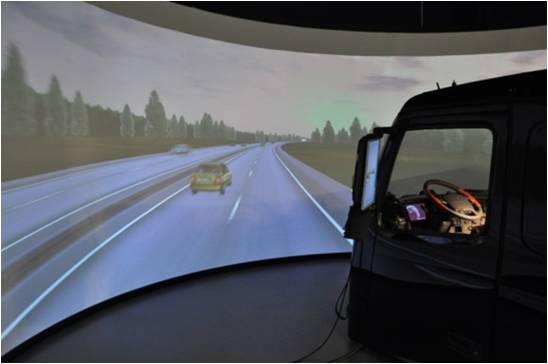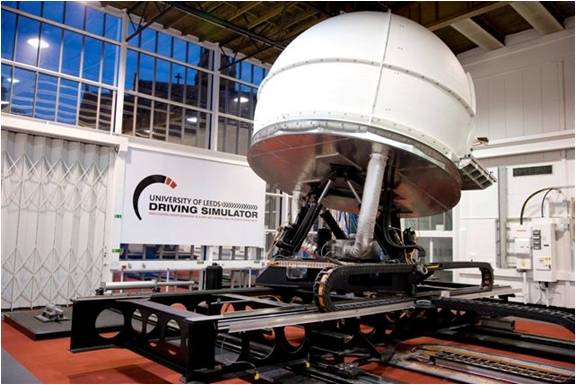
News & events
News
First round of simulator studies

The interaction between driver and vehicle is a key issue when designing functions with different degrees of automation. Therefore, an important task of AdaptIVe is to carry out a number of experiments in vehicle simulator environments to investigate research questions regarding the interaction between the driver and the automated vehicle.
To date, six different experiments have been carried out covering various topics. In total more than 150 people participated in the first round of simulator studies conducted by AdaptIVe partners University of Leeds, Volvo Car Corporation, Volvo Technology, German Aerospace Center (DLR) and Würzburg Institute for Traffic Sciences. Beside of the simulator studies around 2000 people answered an online survey and 10 people attended a qualitative focus group organized by Ford.
 The key topics of the experiments included an exploration of the transition between automated and manual driving, and investigations of how drivers’ behavior is affected by particular traffic situations and system failures. The research indicates that contextual factors can influence drivers’ interaction behaviour. For example the experiment conducted by Volvo indicated that traffic density appears to affect the time to automation activation with shorter activation times occurring in situations of high density. Different HMI-designs were also examined in terms of how the level of automation and upcoming system limits can be communicated to the driver, and how the drivers’ mode awareness can be enhanced (e.g. the study by WIVW and DLR).
The key topics of the experiments included an exploration of the transition between automated and manual driving, and investigations of how drivers’ behavior is affected by particular traffic situations and system failures. The research indicates that contextual factors can influence drivers’ interaction behaviour. For example the experiment conducted by Volvo indicated that traffic density appears to affect the time to automation activation with shorter activation times occurring in situations of high density. Different HMI-designs were also examined in terms of how the level of automation and upcoming system limits can be communicated to the driver, and how the drivers’ mode awareness can be enhanced (e.g. the study by WIVW and DLR).
Another important research theme is the “out of the loop” phenomenon.The University of Leeds studied the phenomenon in order to understand how and when drivers are out of the loop, and what the consequences are in terms of driver metrics. The study showed that the drivers can be taken “out of the loop” using light and heavy fog manipulations of the driving scene. However, drivers were still able to determine the criticality of an impending collision.
In several of the studies there have also been subjective measurements to investigate drivers’ preferences and experiences of HMI-design solutions, parking support and communication channels. In the parking support studies the influence of factors such as demographics, age, gender and country of origin were also analysed. The results indicate that these factors do not appear to impact appraisals of parking support aids.
For further information about the simulator studies, please contact Mikael Söderman (mikael.soderman@volvo.com) or Ruth Madigan (R.Madigan@leeds.ac.uk).


